Capcom's Revival: From Resident Evil 6 to Monster Hunter Wilds' Success
With *Monster Hunter Wilds* breaking Steam records and *Resident Evil* more popular than ever, thanks to *Village* and a series of stellar remakes, Capcom seems to be on an unstoppable winning streak. However, this wasn't always the case. Less than a decade ago, after a string of critical and commercial flops, Capcom was struggling. The company had lost its way and its audience, grappling with an identity crisis that threatened its very existence.
Resident Evil, once the pioneer of the survival horror genre, had lost its edge after *Resident Evil 4*. Meanwhile, another flagship series, *Street Fighter*, was also faltering with the poorly received *Street Fighter 5*. These setbacks could have spelled the end for Capcom and its beloved franchises.
Yet, in the midst of this turmoil, Capcom found a way to reinvent itself. A shift in their game development approach, powered by a new game engine, breathed new life into their iconic series. This strategic overhaul not only revived these franchises but also propelled Capcom into a new era of success.
Resident Evil Lost Its Way
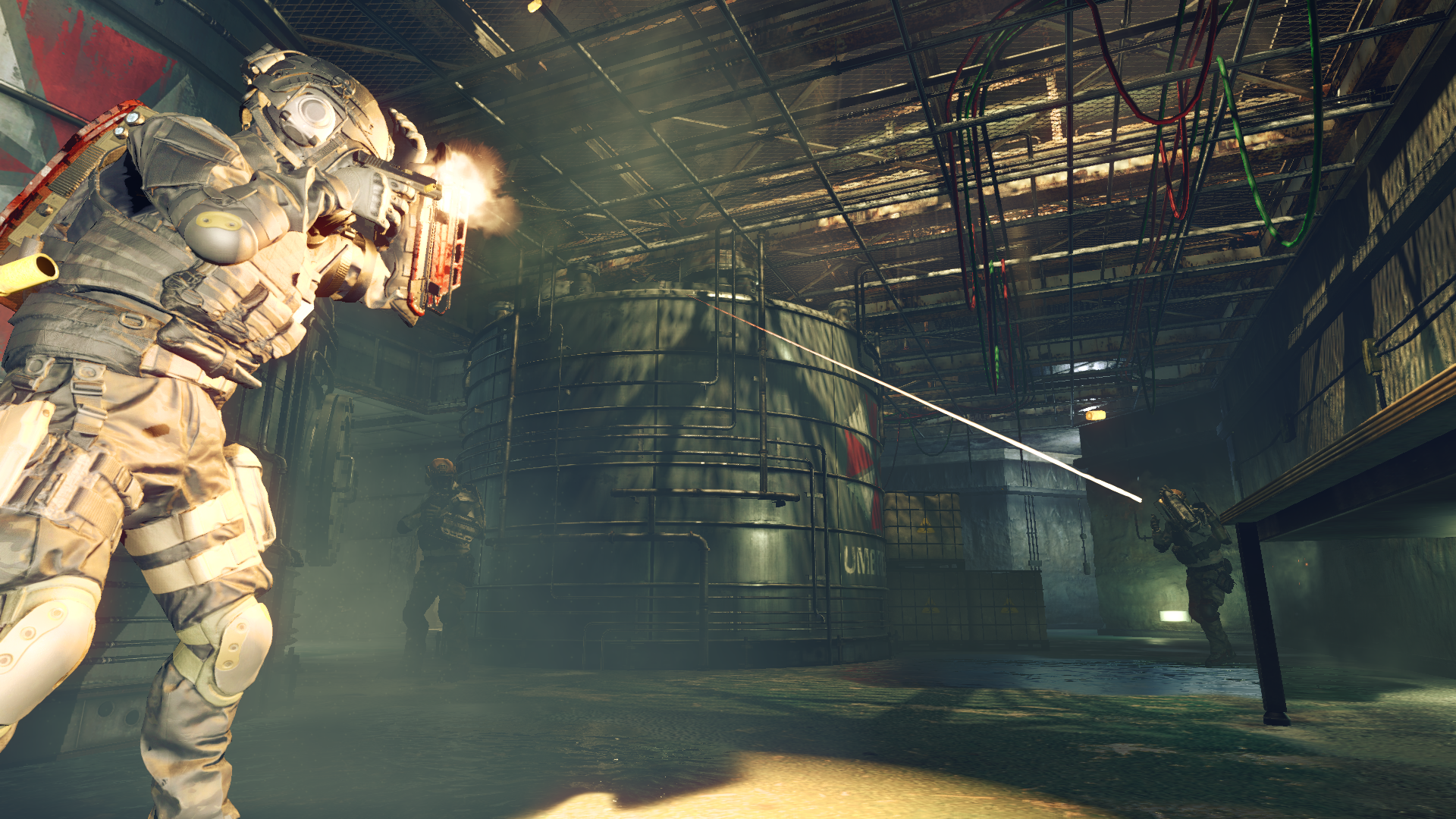
2016 was a challenging year for Capcom. The release of *Umbrella Corps*, an online co-op shooter, was met with harsh criticism from both reviewers and fans. Similarly, *Street Fighter 5* disappointed many with its lackluster content, and *Dead Rising 4* marked the end of new entries in that series. This period represented the lowest point in a series of lackluster years for Capcom, which had been struggling since 2010.
During this time, the mainline *Resident Evil* games saw declining critical reception despite strong sales. *Street Fighter* was struggling to recover from a poorly received new entry, and other key franchises like *Devil May Cry* were absent from the scene. Meanwhile, *Monster Hunter*, though immensely popular in Japan, was finding it difficult to break into international markets.
"Many of us started feeling that what the fans and players wanted from the series was getting a little bit separate from what we were making," said a Capcom developer. This sentiment was a far cry from the Capcom we know today, which has been on a roll since 2017 with hits like *Monster Hunter World*, *Devil May Cry 5*, *Street Fighter 6*, and a series of critically acclaimed remakes and a successful soft reboot of *Resident Evil*.
Achieving this turnaround required more than just learning from past mistakes. Capcom had to rethink its entire strategy, from its target audience to the technology it used. To understand this transformation, IGN interviewed four of Capcom's leading creatives to uncover how this once-struggling company managed to stage such a remarkable comeback.
Founded in 1979 as a maker of electronic game machines, Capcom rose to prominence in the '80s and '90s with iconic 2D games like *Street Fighter* and *Mega Man*. The company successfully transitioned to 3D gaming with titles like *Resident Evil*, culminating in the release of one of the greatest games of all time, *Resident Evil 4*, in 2005.
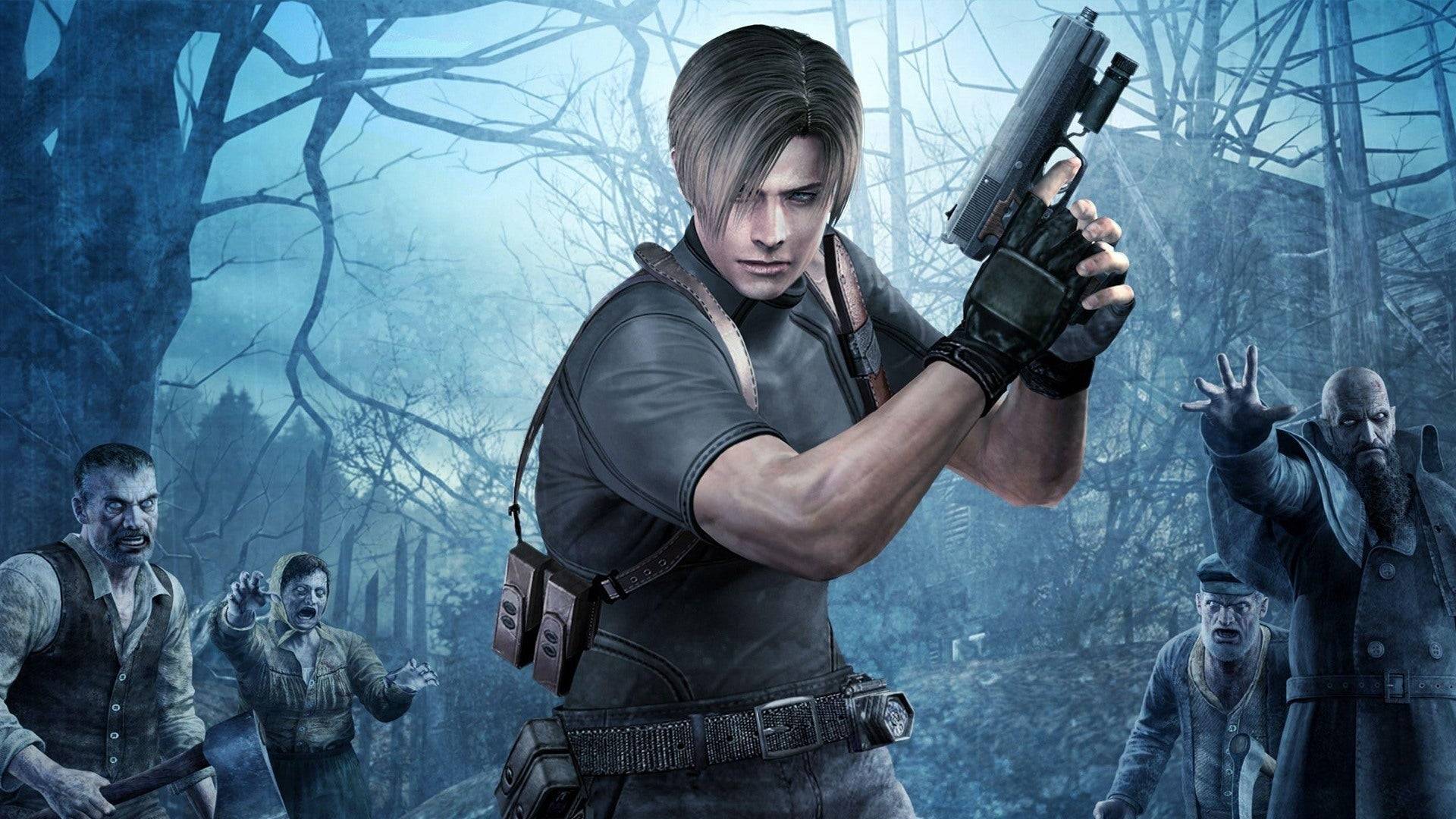
*Resident Evil 4* was celebrated for its perfect blend of horror and action, drawing inspiration from classics like *Friday the 13th*, H.P. Lovecraft, and John Carpenter's films. However, subsequent games like *Resident Evil 5* and *6* strayed from this balance, shifting towards more action-oriented gameplay, which alienated fans and developers alike.
"Overall throughout the Resident Evil series, we set up different goals, challenges, and things we want to try with each game… But this time, many of us started feeling that what the fans and players wanted from the series was getting a little bit separate from what we were making," said Yasuhiro Ampo, director of the *Resident Evil 4* remake.
This confusion in direction led to *Resident Evil 6*, which attempted to cater to both action and horror fans but ultimately satisfied neither. Similarly, *Street Fighter 5* failed to live up to its predecessor's success, launching with limited content and poor online functionality. Even *Devil May Cry* struggled, with the series being outsourced to Ninja Theory for *DmC: Devil May Cry*, which received mixed reactions.
Capcom's other attempts to capture the Western market, such as *Lost Planet* and *Asura's Wrath*, also fell short. However, there were bright spots like *Dragon's Dogma*, but overall, Capcom's focus was scattered, and a change was desperately needed.
Street Fighter 5, The Lost Cause
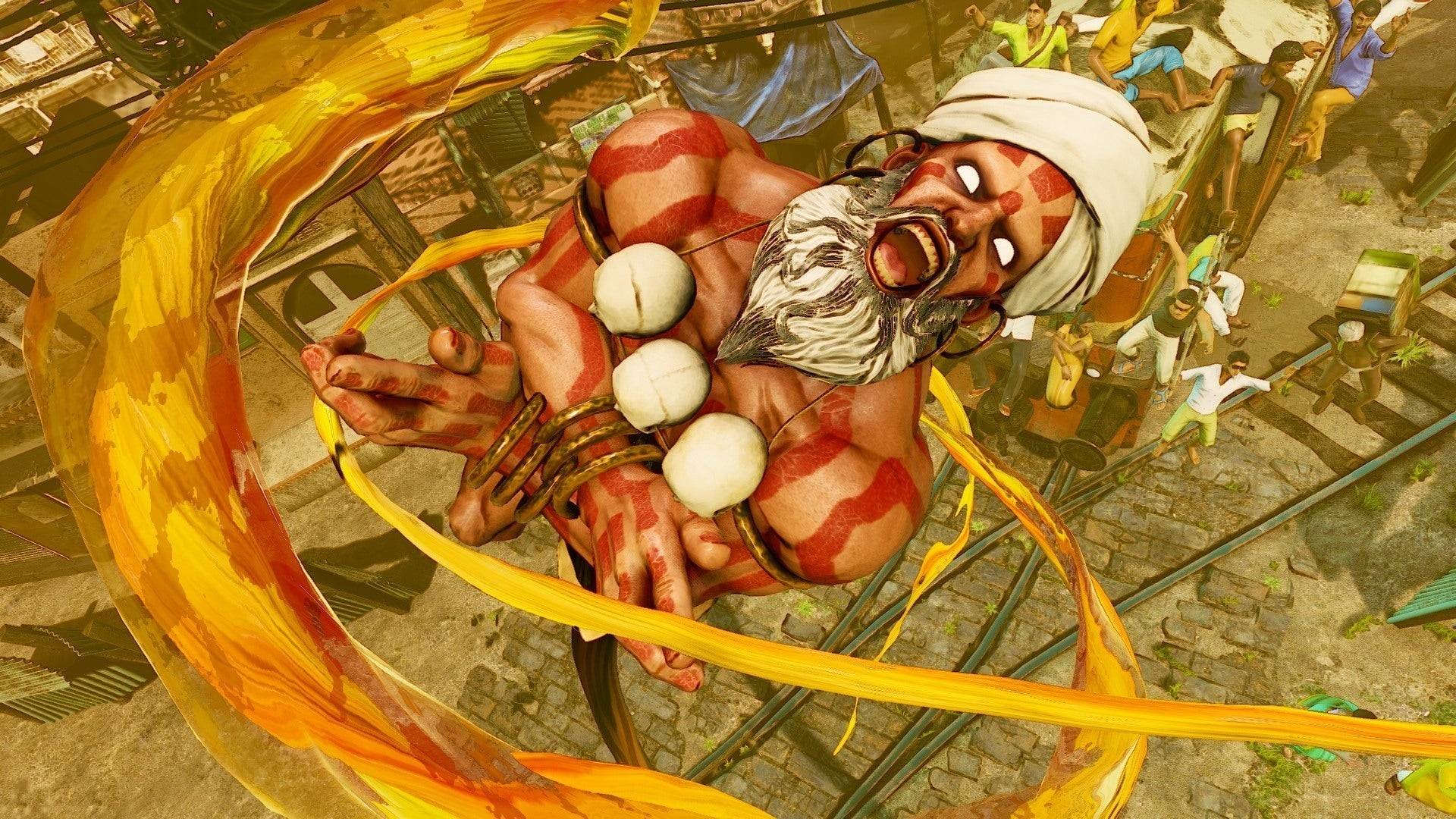
By the mid-2010s, Capcom began implementing significant changes to turn its fortunes around. The first step was addressing the issues with *Street Fighter 5*. Directors Takayuki Nakayama and producer Shuhei Matsumoto were brought in to stabilize the game and regain fan trust.
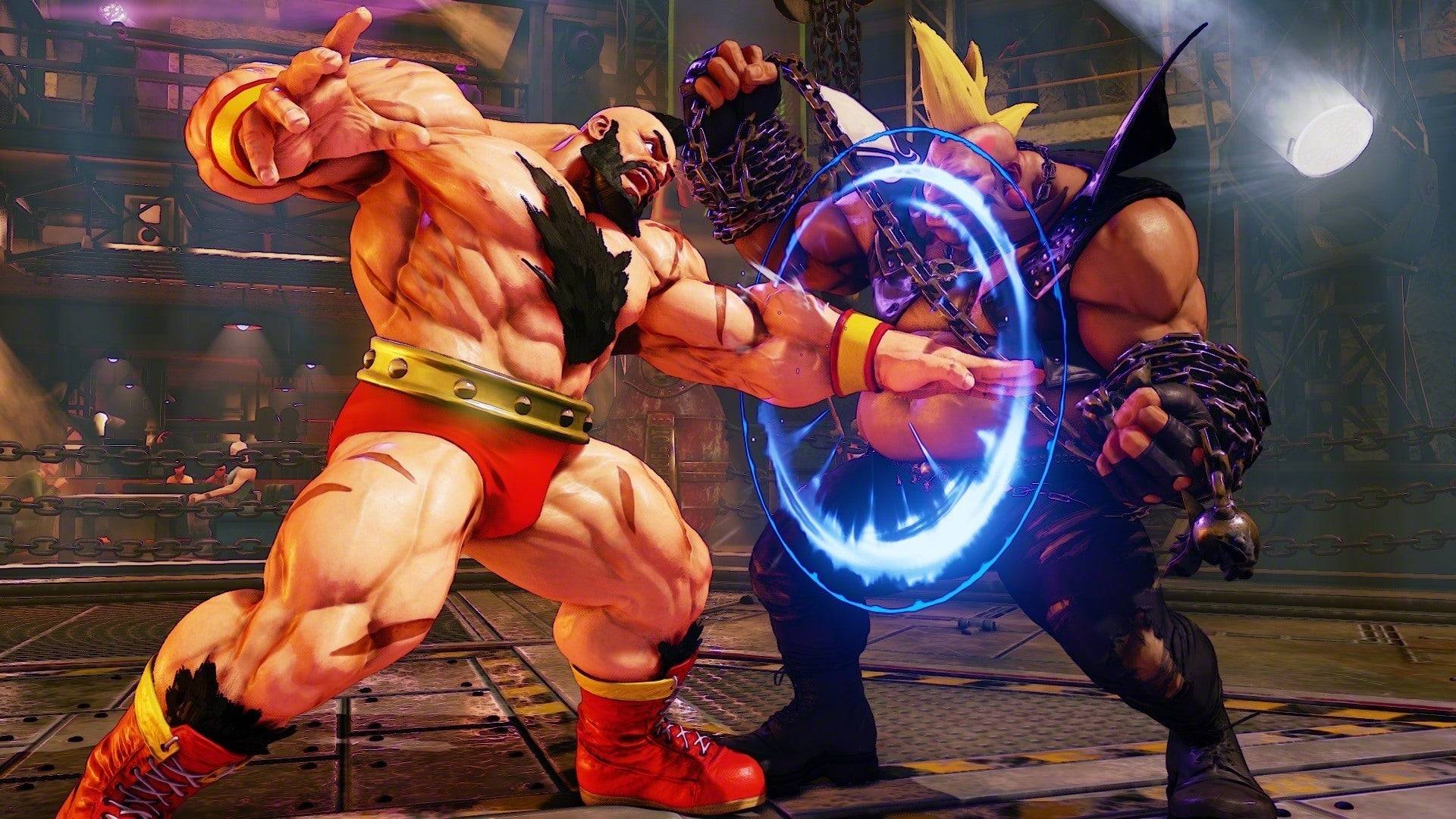
"There definitely were some challenges within the production of the game, and that was part of the reason why I was brought into the team," Nakayama admitted. "And because we were in a point in development where we couldn’t really make any major pivots or shifts, we had to proceed and move forward in the direction we were currently in, which created constraints on what we could and couldn’t do."
Despite these limitations, Nakayama and Matsumoto worked to fix the game's most pressing issues, paving the way for *Street Fighter 6*. "We just didn’t really have enough time to address some of the problems and challenges we faced in Street Fighter V," Nakayama said. "And so, with our hands tied behind our backs, we basically had to wait for those ideas to be brought back for the initial conceptual phases for Street Fighter 6, so we could tackle and do things properly for the next title."
Matsumoto explained that abandoning *Street Fighter 5* was not an option. "There wasn’t any sort of sense of like, ‘Okay let’s just end Street Fighter 5 and focus on Street Fighter 6.’ It was more like, while we were working on Street Fighter V, we were trying to figure out what we really wanted to do in Street Fighter 6 content-wise."
Using *Street Fighter 5* as a testing ground, the team experimented with new features and mechanics, which informed the development of *Street Fighter 6*. "We were in a point in development where we couldn’t really make any major pivots or shifts, we had to proceed and move forward in the direction we were currently in, which created constraints on what we could and couldn’t do," Matsumoto noted.
The overarching goal was to rediscover the fun in fighting games. "We both realized that fighting games are fun, and when you get used to them, it becomes more enjoyable and something you can essentially play forever as long as you have an opponent to play against," Matsumoto said. "However, one of the challenges that we faced with Street Fighter V is that we felt that there wasn’t a clear pathway that helped guide players to get to that level where they finally feel like they’re having fun and will want to continue playing."
*Street Fighter 6* aimed to be more accessible to newcomers while retaining the elements that long-time fans loved. By using *Street Fighter 5* as a platform for experimentation, Capcom was able to launch *Street Fighter 6* as one of the most critically acclaimed games in the franchise.
However, Capcom recognized the need to prevent such overhauls in the future, leading to significant strategic shifts and the introduction of new behind-the-scenes changes.
Monster Hunter Took Over The World
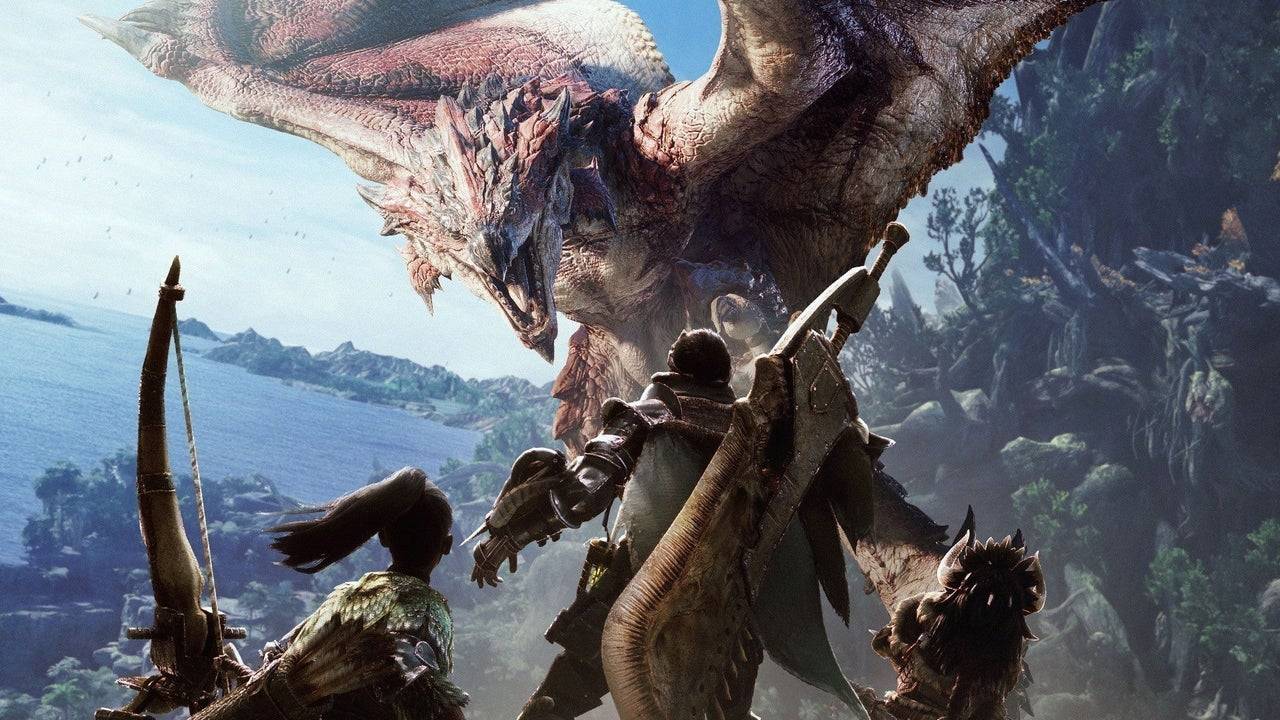
Around the time of *Street Fighter 5*'s launch in 2016, Capcom underwent an internal reorganization to prepare for a new generation of games powered by the RE Engine, which replaced the aging MT Framework. This change was about more than just tools; it was about creating games for a global audience.
"It was a few factors that came together," said Hideaki Itsuno, known for his work on *Devil May Cry*. "The change of the engine and also all teams were given a very clear goal at that point to make games that reach the global market. [Games] that are fun for everyone."
Capcom's previous efforts to capture the Western market with action-heavy games like *Umbrella Corps* and *Lost Planet* were unsuccessful. Realizing this, Capcom shifted focus to creating universally appealing games. "I think that we had that clear goal of just focusing and not holding anything back," Itsuno said. "Towards making good games that would reach people from all over the world."
The changes leading up to 2017 were pivotal, with *Resident Evil 7* marking the beginning of Capcom's renaissance. "I think that we had that clear goal of just focusing and not holding anything back towards making good games that would reach people from all over the world," Itsuno noted.
*Monster Hunter* epitomizes Capcom's new global strategy. Though it had a dedicated fanbase in the West, the series was significantly more popular in Japan. The transition to handheld consoles like the PSP with *Monster Hunter Freedom Unite* contributed to its success in Japan, where handheld gaming was more prevalent.
"20 years ago in Japan, having a network connection wasn't as easy, and there weren’t a huge amount of people playing Monster Hunter online. However, handheld consoles made multiplayer gameplay easy without internet access, and I regard it as a great success that we had players experience the game in this way, which was one of the ways we really wished for them to play and enjoy it, even in that era when online gameplay wasn't easy," said Ryozo Tsujimoto, executive producer of the *Monster Hunter* series.
As the Western world improved its internet infrastructure, Tsujimoto and the team saw an opportunity to launch *Monster Hunter: World*, the franchise's most globally accessible game to date. Released in 2018 on PlayStation 4, Xbox One, and PC, *Monster Hunter: World* featured large-scale, AAA console-quality action, with enhanced graphics and expansive areas.
"Our approach to the globalization of the series and Monster Hunter in general really ties into not only the themes that we had going into designing the game, but also in the name of the game," Tsujimoto revealed. "The fact that we called it Monster Hunter: World is really kind of a nod to the fact that we wanted to appeal to this worldwide audience that we wanted to really dig into and experience Monster Hunter for the first time."
To ensure *Monster Hunter: World* appealed globally, it was released simultaneously worldwide without exclusive content for Japan. "For World, we conducted focus tests across the world, and some of the feedback and opinions that we got during that process really affected how we designed our game systems and impacted how much success we had globally," Tsujimoto said.
These tweaks, such as showing damage numbers when hitting monsters, significantly broadened the game's appeal. *Monster Hunter: World* and its follow-up, *Monster Hunter Rise*, both sold over 20 million copies, a massive increase from previous entries.
"The fact that we called it Monster Hunter: World is really kind of a nod to the fact that we wanted to appeal to this worldwide audience that we wanted to really dig into and experience Monster Hunter for the first time," Tsujimoto said. This approach continued with *Monster Hunter Wilds*, focusing on making the series more accessible to new players while maintaining its core action elements.
Resident Evil 7 Began Turning Things Around
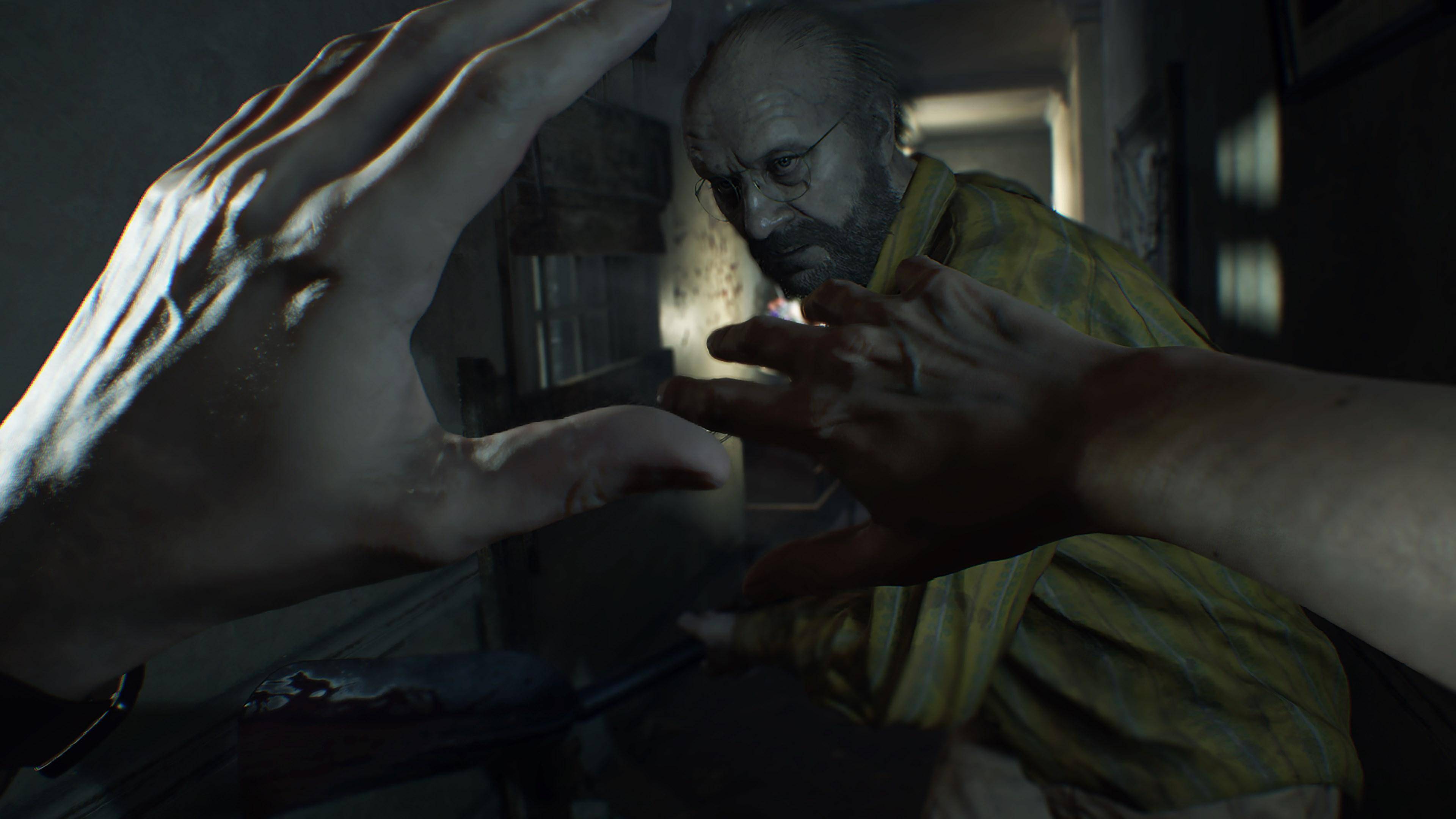
While *Monster Hunter* had a winning formula, *Resident Evil* faced a different challenge: deciding whether to focus on gory action or survival horror. Jun Takeuchi, executive producer of the *Resident Evil* series, made the pivotal decision to return to the series' survival horror roots.
"It was around the time I was working on Resident Evil Revelations 1 and 2. I was trying to test different things, try different approaches," said Yasuhiro Ampo, director of *Resident Evil 2* and *4* remakes. "And around this time is when the R&D teams were divided into R&D division one and two. The executive producer of the Resident Evil series, Jun Takeuchi, took command of R&D division one, and he set the core direction that the Resident Evil series needed to go back to its origins, to its roots."
*Resident Evil 7* was announced at PlayStation's E3 2016 conference with a first-person perspective, reintroducing the series to its horror roots. "We cannot underestimate how critical it is for the series for it to be scary," Ampo said. "With Resident Evil 7, the executive producer, Jun Takeuchi, made it clear that we cannot underestimate how critical it is for the series for it to be scary and about survival. So he made it clear that Resident Evil 7 would go back to its origins, it would be very cautious with its survival elements. And with that as a basis, then we would try new and different things."
*Resident Evil 7* was a critical and commercial success, revitalizing the series with its return to survival horror. Meanwhile, Capcom continued to honor the series' third-person roots with remakes, starting with *Resident Evil 2*, which became one of the best-selling games in the franchise.
"Resident Evil 4 is a game that is so beloved. If we get anything wrong with the remake, people might be quite vocal about their discomfort," Ampo said. Despite initial hesitation, the *Resident Evil 4* remake was a hit, fine-tuning the balance between action and horror while staying true to the series' roots.
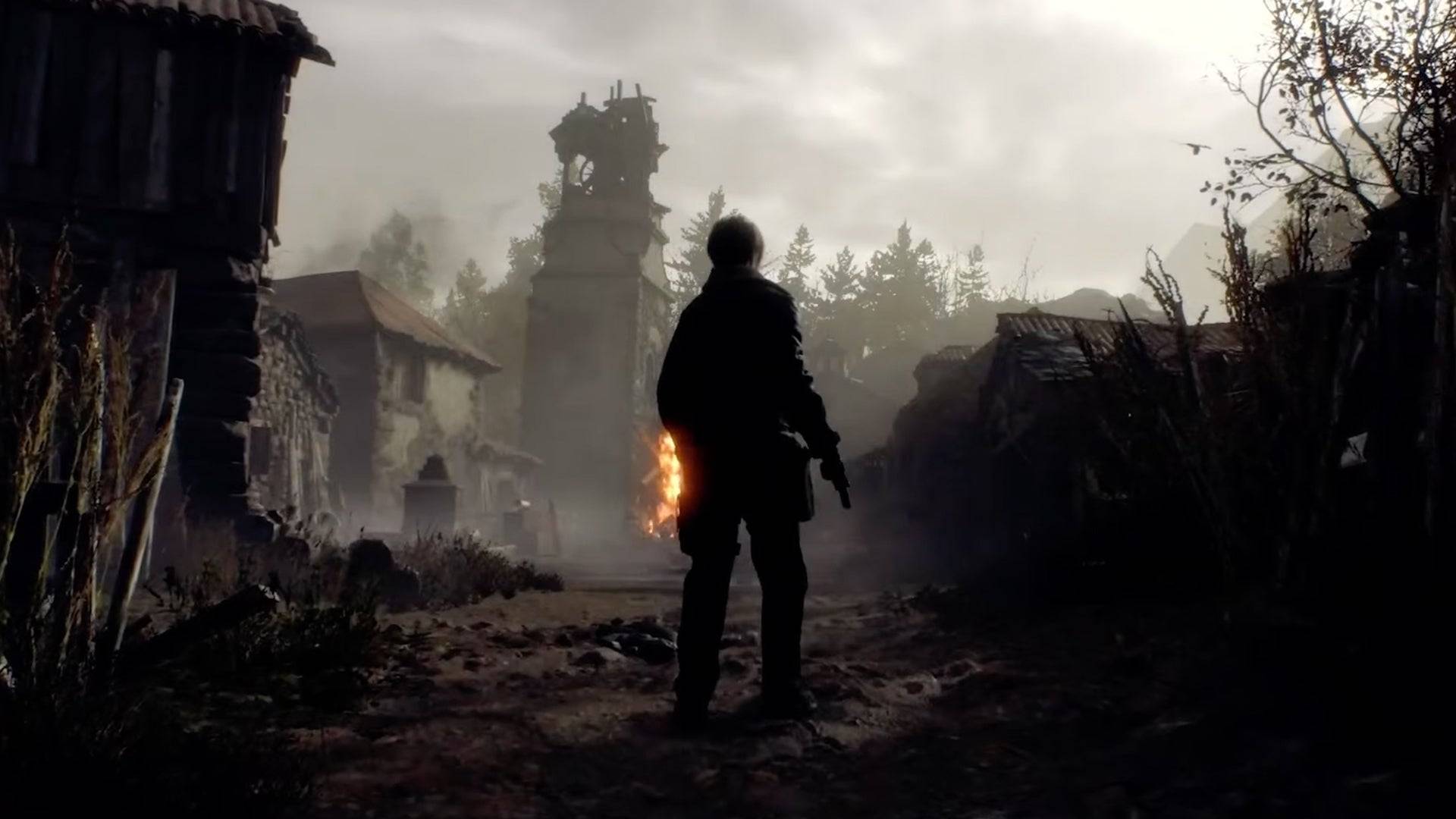
At the same time, Hideaki Itsuno, longtime director of *Devil May Cry*, sought to reinvigorate the action genre with *Devil May Cry 5*, leveraging Capcom's new RE Engine to achieve his vision.
The Reason Behind The Change
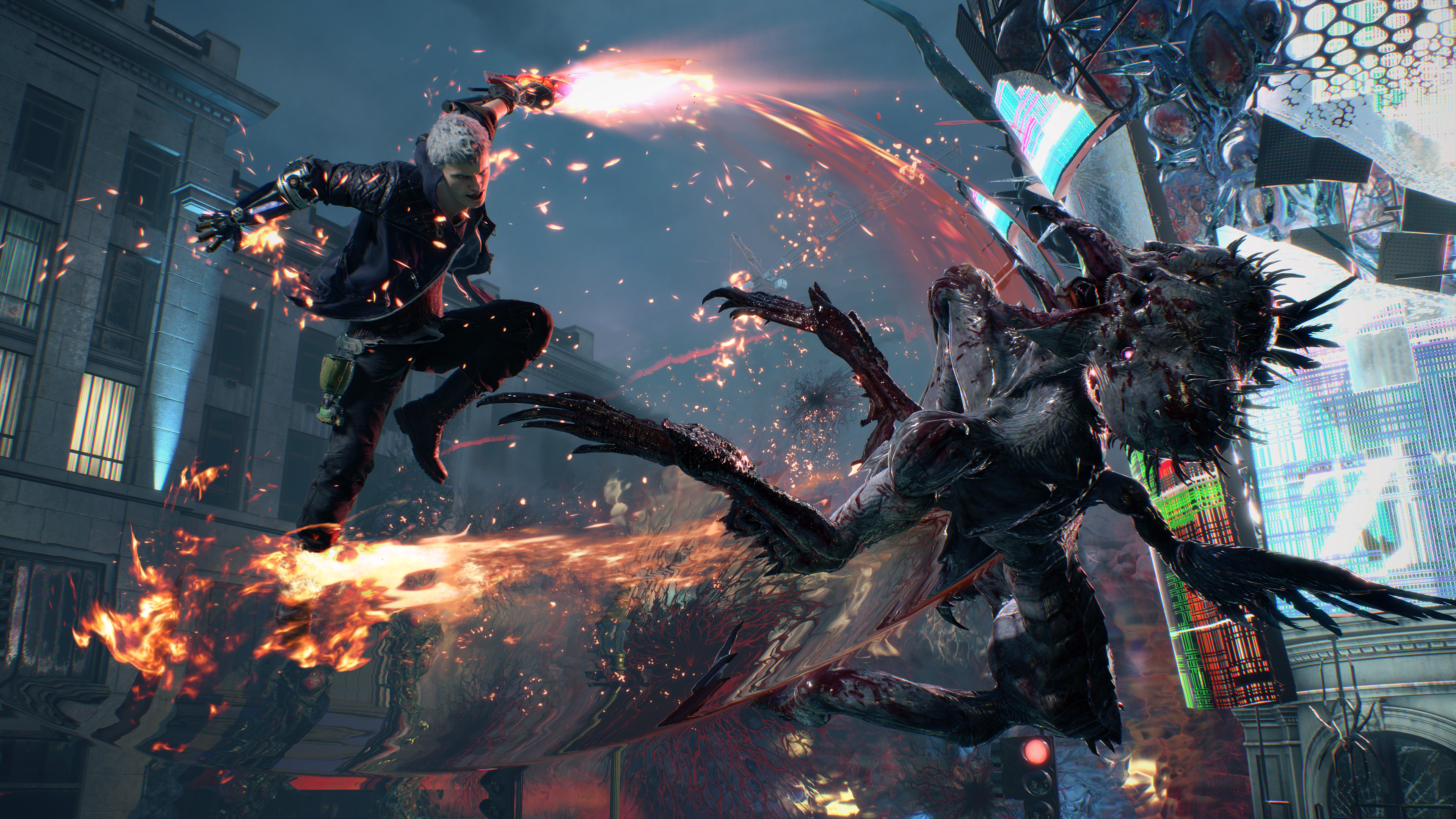
"I felt like the main trend with action games was to make action games that were very kind," Itsuno admitted. "Maybe, for me, a little bit too kind to the players, lending a hand to the player too much to my liking."
After a decade away from the series, Itsuno returned with a clear vision for *Devil May Cry 5*, aided by significant technological advancements. "Technology-wise, there were not just little improvements that you would have when you work on a series consecutively," Itsuno said. "When there’s a wide timeframe, [the technology] changes significantly."
The RE Engine, which powers most of Capcom's modern games, allowed for photorealistic assets and more agile development, enabling Itsuno to create a game that was both visually stunning and mechanically innovative. "Ever since I took over the series from Devil May Cry 3, I put everything that I, as a person, I considered throughout my life to be cool," Itsuno said.
A New Capcom Golden Age
Since 2017, Capcom has consistently released critically acclaimed games, a feat that sets it apart from other major studios. This success is attributed to a focus on creating globally appealing games using the advanced RE Engine, which allows Capcom to seamlessly transition between genres.
"Capcom is going through a golden era, and, well, now we have to do everything we can so that this lasts one more year, one more year, and every year, one more year," said Ryozo Tsujimoto. Capcom's commitment to maintaining the essence of its franchises while expanding their global appeal has resulted in a new golden age that shows no signs of slowing down.
While many of Capcom's contemporaries struggle to find their identity, Capcom has successfully reinvented itself, proving that a focus on quality, innovation, and global appeal can lead to unprecedented success. "It’s a very exciting time to be at Capcom right now. A lot of us are able to get excited about what we’re working on and are able to focus on things that we think are fun. So, yes, I guess a golden age may be one interpretation of that," said Takayuki Nakayama.
Capcom's journey from near failure to a new golden age is a testament to the power of strategic reinvention and a commitment to delivering high-quality, globally appealing games.
-
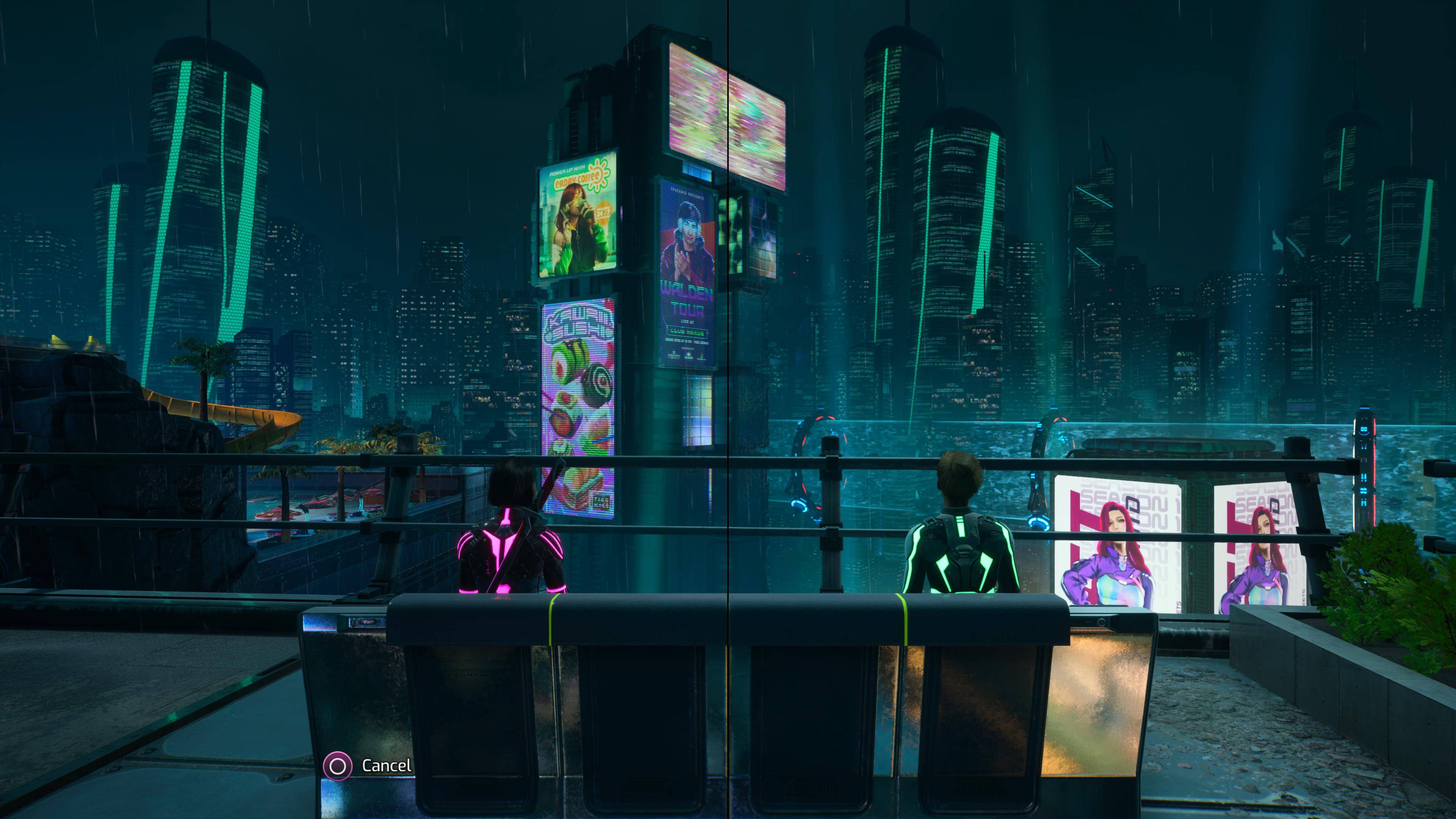 Mar 17,25All Split Fiction Achievements & How to Unlock Them Dive into the captivating co-op adventure Split Fiction from Hazelight Studios! This guide outlines every achievement, ensuring you and your partner conquer every challenge. While some trophies are earned naturally through the story, many require thorough exploration and unique actions. Use this g
Mar 17,25All Split Fiction Achievements & How to Unlock Them Dive into the captivating co-op adventure Split Fiction from Hazelight Studios! This guide outlines every achievement, ensuring you and your partner conquer every challenge. While some trophies are earned naturally through the story, many require thorough exploration and unique actions. Use this g -
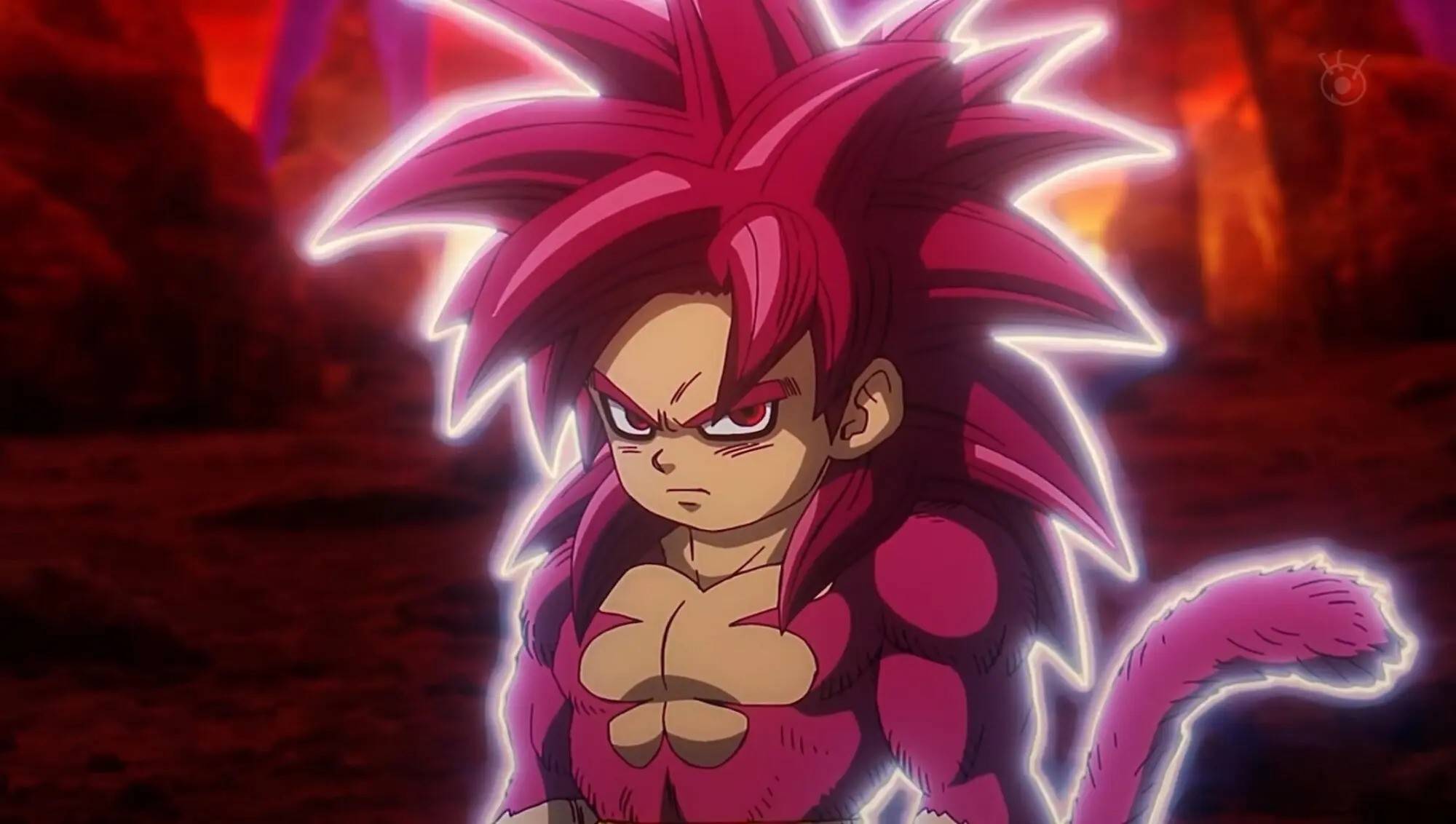 Mar 19,25How Does Dragon Ball Daima’s Finale Explain Goku Never Using Super Saiyan 4 in Super? The climactic battle in Dragon Ball Daima's finale pits Gomah against Goku, showcasing Goku's newly acquired form. This episode naturally led many fans to anticipate an explanation for Super Saiyan 4's absence in Super. So, how does the finale address this?In episode 19, after Glorio's wish restore
Mar 19,25How Does Dragon Ball Daima’s Finale Explain Goku Never Using Super Saiyan 4 in Super? The climactic battle in Dragon Ball Daima's finale pits Gomah against Goku, showcasing Goku's newly acquired form. This episode naturally led many fans to anticipate an explanation for Super Saiyan 4's absence in Super. So, how does the finale address this?In episode 19, after Glorio's wish restore -
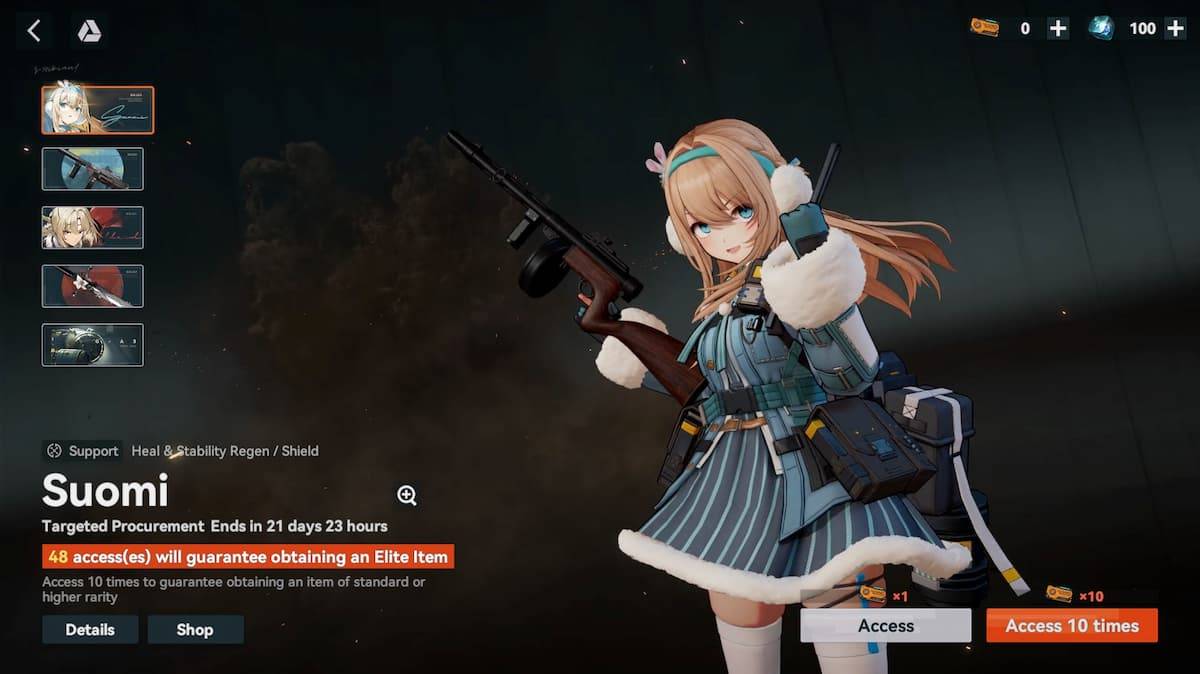 Jan 16,25Girls' Frontline 2: Exilium Tier List Released Another free-to-play gacha game, another character ranking to guide your investment choices. This Girls’ Frontline 2: Exilium character tier list helps you prioritize which characters are worth your resources. Girls’ Frontline 2: Exilium Character Tier List Here's a breakdown of currently available
Jan 16,25Girls' Frontline 2: Exilium Tier List Released Another free-to-play gacha game, another character ranking to guide your investment choices. This Girls’ Frontline 2: Exilium character tier list helps you prioritize which characters are worth your resources. Girls’ Frontline 2: Exilium Character Tier List Here's a breakdown of currently available -
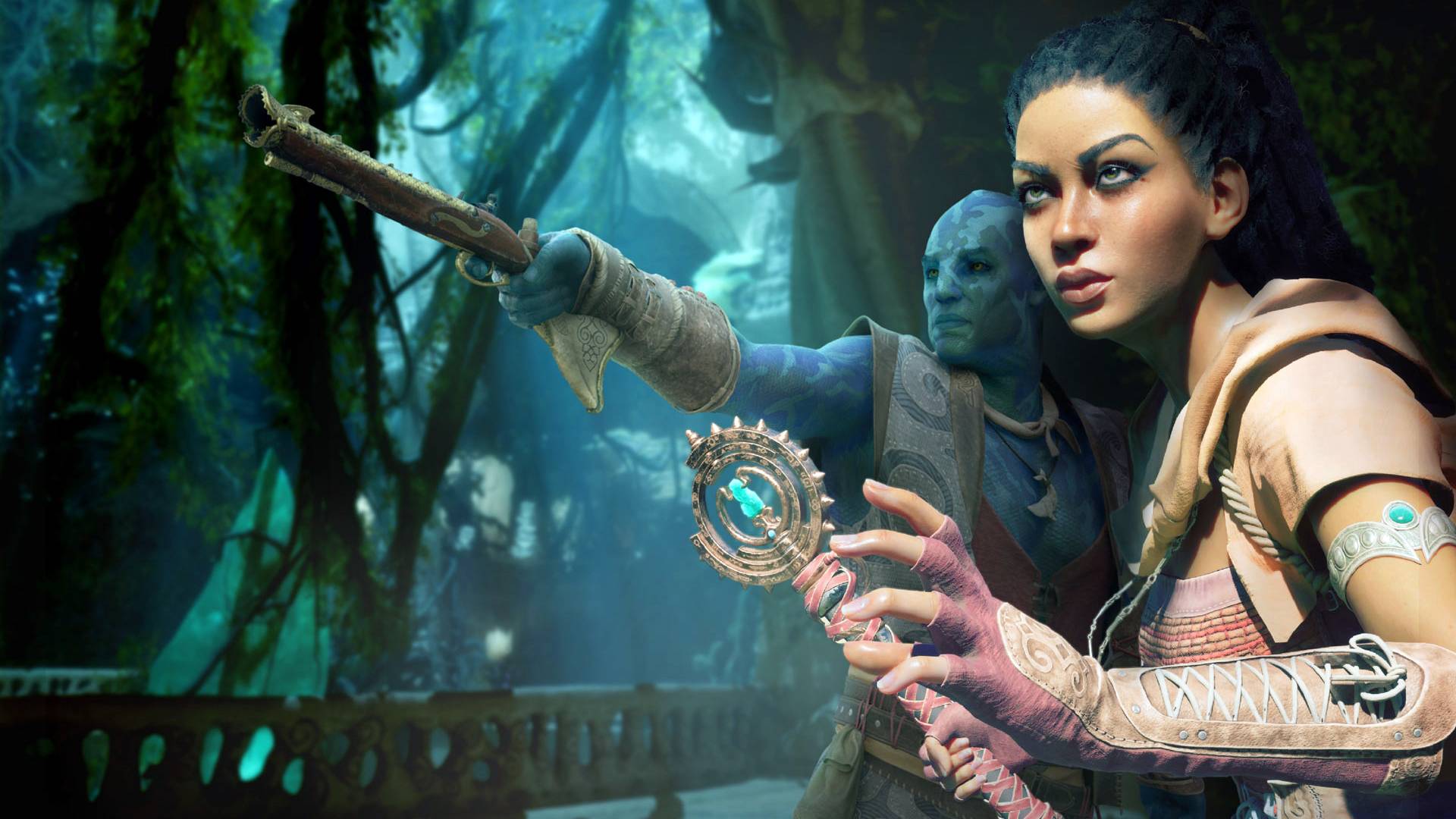 Mar 18,25Avowed Best PC Settings for Max FPS *Avowed*, a visual masterpiece, immerses you in a richly detailed world. To fully appreciate its stunning graphics without sacrificing performance, optimizing your PC settings is key. This guide helps you strike the perfect balance between breathtaking visuals and smooth gameplay.Recommended Videos
Mar 18,25Avowed Best PC Settings for Max FPS *Avowed*, a visual masterpiece, immerses you in a richly detailed world. To fully appreciate its stunning graphics without sacrificing performance, optimizing your PC settings is key. This guide helps you strike the perfect balance between breathtaking visuals and smooth gameplay.Recommended Videos
